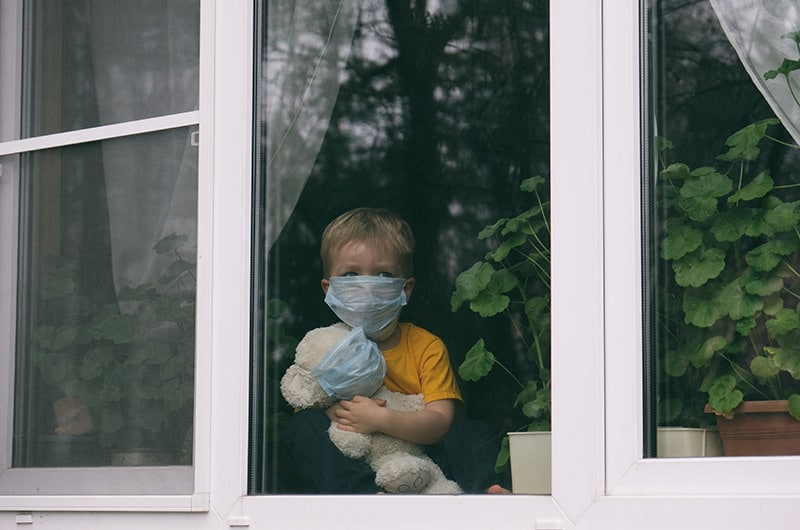As with most hard talks, honesty is the best approach. Sharing actionable information will lessen your child’s worry about the spread of this new virus.
The pandemic is likely not news to our children. They’ve probably heard about the novel coronavirus, also known as COVID-19, from their peers. Schools across the country are closed and most daycare centers are, too.
It’s likely your child understands the severity of the disease but perhaps not how it is spread or what we can do. They may also be afraid. That’s why it’s important to talk with them about the coronavirus. Let them know that it’s OK to be concerned and teach them how they can stay safe.
Open Dialogue
Your children may have a lot of questions, be reluctant to talk about it, or not have all the facts. Here are some talking points — along with advice from J. Trever Rester, MD, internal medicine physician and pediatrician on the medical staff at Methodist Richardson Medical Center — to start the conversation with your child about COVID-19:
- Ask your child what they know about COVID-19. Your child may have heard it discussed at school or on the news. Some stories can be frightening — especially ones reporting death rates. Don’t be judgmental. Just listen. Dr. Rester explains that maintaining a positive, upbeat attitude and speech will help combat your child’s fears.
“Children will react to and follow your verbal and nonverbal reactions,” he explains. “Remind them that you and other adults are working hard to keep them safe and healthy.”
- Reassure your child that it’s OK to be scared. None of us know what will happen, but you can lessen fear with information. Explaining the facts and emphasizing ways to stay clear of the illness are essential points to make. Dr. Rester suggests you avoid watching or listening to information that may be upsetting when your children are present.
“Constantly watching updates on the status of COVID-19 can increase anxiety, particularly in young children,” he says. “Engage your child in games or other interesting activities instead of screen time.”
- Keep it simple. Depending on your child’s age and/or developmental stage, keep your discussion age-appropriate. For preschool and early elementary age children, don’t share too much information. It can be overwhelming. If your child has special needs and anxiety, share just enough information to allay fears. Respect your child’s comfort level.
- It’s OK if you don’t have all the answers. Be honest. Look up the information on a reliable website or ask a trusted medical professional. The World Health Organization and the Centers for Disease Control and Prevention should be your go-to websites for factual coronavirus/COVID-19 information, according to Dr. Rester.
- Don’t share your anxiety with your children. If you’re feeling overwhelmed, calm down before talking to your child. Children can easily pick up on stress.
“For younger children, answer their questions simply and directly without providing excess, over-complicated explanations which can be confusing to them,” Dr. Rester says.
- Share strategies to stay safe. Explain how washing your hands with soap and water for 20 seconds each time can help stop the spread of the virus. Speak with your child about the importance of social distancing — or staying at least 6 feet apart from others. Teach your child not to touch his face, nose, or mouth with unwashed hands.
- Arrange for virtual playdates. For young children, set up video chats so they can “hang out” with their friends.
- Get counseling if your child’s anxiety persists. If your child is still anxious, keep the lines of communication open. Let your child know you’re always there for him. If the anxiety becomes too much to handle, call a professional counselor.
Learn more about medications and home remedies to treat symptoms of COVID-19.
Sources: cdc.gov

